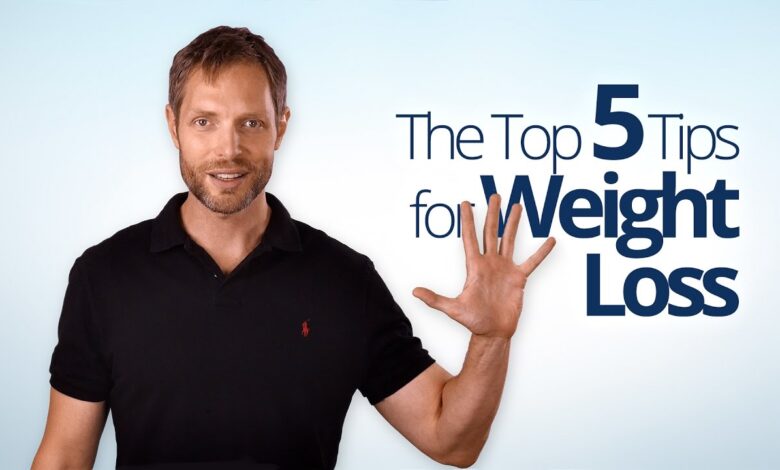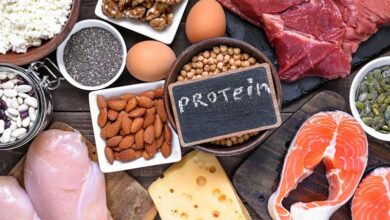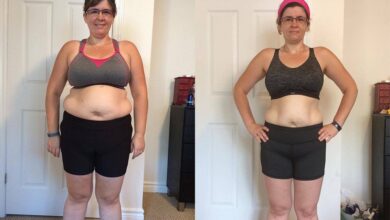
Weight loss often feels like a luxury when you’re balancing the demands of a fast-paced career, family responsibilities, and personal goals. Many busy professionals start their mornings skipping breakfast, rushing through traffic, grabbing quick bites between meetings, and sitting for hours at a desk. By the time the day ends, you’re exhausted, stressed, and more likely to reach for pizza or fried chicken instead of a salad. This cycle leads to weight gain, poor energy, and frustration.
But here’s the truth: weight loss isn’t about spending two hours in the gym every day or cooking elaborate meals from scratch. It’s about making smarter, more efficient choices that align with your lifestyle. Think of it the same way you approach productivity hacks at work—you don’t work longer hours, you work smarter. The same principle applies to your body.
The challenge is not your schedule but the lack of simple, sustainable systems. You need strategies that work in the middle of a boardroom presentation, while traveling for business in Europe, or during a hectic week balancing remote work and family life. This article will show you exactly how to implement those strategies without losing your sanity.
Read Also Simple Daily Habits for Weight Loss: Proven Guide for Busy Professionals
What Every Professional Should Know
At its most basic, weight loss boils down to energy balance—calories in versus calories out. If you eat more calories than your body burns, you gain weight. If you eat fewer, you lose weight. Yet, for professionals, the situation is more complex because lifestyle factors interfere with this equation.
Stress raises cortisol, a hormone that increases appetite and cravings for sugar-rich foods. Long hours at your desk reduce your daily calorie burn. Inadequate sleep affects hunger hormones, making you hungrier even when your body doesn’t need extra fuel. Add business dinners, travel meals, and alcohol, and you can see how the professional lifestyle sabotages weight goals.
Understanding this science allows you to work with your body instead of against it. For instance, prioritizing high-protein meals boosts metabolism and helps you stay fuller longer. Short, high-intensity workouts improve calorie burn and fit into tight schedules. Hydration curbs false hunger signals. This isn’t about deprivation but about creating a calorie deficit through smarter choices.
Think of your body like a high-performing business: to stay profitable, you must cut unnecessary expenses (junk food), invest in growth (exercise), and manage stress to avoid burnout.
Nutrition Hacks for Professionals Who Hate Dieting
The word “diet” often creates fear because it suggests restriction and failure. For busy professionals, extreme dieting simply doesn’t work—you don’t have the time or energy for complicated meal rules. What you need is a flexible eating framework that supports fat loss without making you miserable.
One effective approach is the 80/20 rule: eat nutrient-dense foods 80% of the time, and allow flexibility for 20%. This prevents the “all or nothing” mindset and keeps you consistent. For example, have grilled chicken with vegetables during the week, but enjoy sushi or pizza at a client dinner without guilt.
Focus on protein-rich meals—they keep you fuller and protect lean muscle while you lose fat. Eggs, fish, chicken, beans, and Greek yogurt are portable and office-friendly. Replace soda with sparkling water or green tea. Choose whole grains like quinoa or brown rice instead of white bread. And never underestimate the power of carrying healthy snacks like almonds, apple slices, or protein bars—you’ll avoid vending machine sabotage.
The trick isn’t to eat less but to eat smarter. That means planning ahead, reducing processed foods, and adding meals that fuel energy and productivity, not just satisfy short-term cravings.
Meal Prep for Success: Save Time, Lose Weight
Meal prepping is a game-changer for professionals. Think of it as outsourcing your nutrition to your past self. Instead of stressing over “What should I eat today?” you simply grab a meal that’s already prepared.
Start with batch cooking. Grill chicken breasts, roast a tray of vegetables, and cook quinoa or brown rice on Sunday. Store them in reusable containers and rotate combinations throughout the week. For breakfast, prep overnight oats or smoothie packs that you can blend in under two minutes.
Meal prep isn’t about fancy recipes; it’s about consistency. For snacks, pre-portion nuts, hummus cups, and cut fruits into small containers. If you’re a frequent traveler, pack portable snacks like protein bars or jerky to avoid unhealthy airport meals.
By meal prepping, you not only save calories but also money and mental energy. Just like you automate tasks at work, automate your diet. Every meal you prep reduces the chances of impulse decisions that lead to weight gain.
Smart Snacking: Beat the Afternoon Slump Without Guilt
The 3 p.m. slump is when most professionals lose control. Energy crashes trigger sugar cravings, leading to cookies, soda, or pastries. But snacking doesn’t have to be the enemy—it can be your secret weapon for weight loss if done correctly.
The key is choosing snacks that combine protein, fiber, and healthy fats. This combination stabilizes blood sugar and keeps you full longer. Swap chips for almonds or walnuts. Replace candy with Greek yogurt and berries. Instead of energy drinks, choose green tea, which provides caffeine without a crash.
Also, practice portion control. Eating straight from a family-size bag leads to overeating. Pre-pack snacks into small containers to avoid temptation. And drink water first—dehydration often masquerades as hunger.
Snacking smartly keeps your metabolism active, prevents binge eating at dinner, and provides steady energy for your workday.
Hydration and Weight Loss: Why Water is the Secret Weapon
Water is the most underrated weight loss tool for professionals. Your body often confuses thirst with hunger, leading to unnecessary snacking. Drinking enough water curbs cravings, boosts metabolism, and improves focus during work.
Aim for at least 2–3 liters daily, adjusting for activity level and climate. Start your day with a glass of water before coffee. Keep a reusable bottle at your desk. Add lemon, cucumber, or mint for flavor if plain water bores you.
Hydration also improves skin health, reduces fatigue, and supports digestion. Professionals who replace soda or juice with water can cut hundreds of calories weekly. Simple swaps like these compound over time, leading to steady fat loss.
Quick Workouts That Fit Into Your Lunch Break
The biggest excuse professionals give for not working out is “I don’t have time.” But here’s the secret: you don’t need hours—you need intensity.
High-Intensity Interval Training (HIIT) workouts can be done in 20 minutes and burn more calories than traditional cardio. Bodyweight circuits—squats, push-ups, burpees, and planks—require no equipment and can be done in your office or hotel room. Even walking meetings, stair climbing, and stretching breaks count toward activity.
The goal is consistency. Just like you schedule meetings, block time in your calendar for movement. A 15-minute workout daily is better than one long workout you never stick to.
The Role of Sleep in Fat Loss for Professionals
Sleep is often the first casualty of a busy lifestyle, but it’s also one of the most powerful weight loss tools. Lack of sleep disrupts hormones like ghrelin and leptin, which regulate hunger and fullness. This makes you hungrier and more likely to overeat.
Aim for 7–8 hours of quality sleep. Create a bedtime routine: limit screens before bed, keep your room dark and cool, and avoid caffeine late in the day. Professionals who prioritize sleep notice better focus, energy, and fat loss.
Managing Stress to Prevent Emotional Eating
Stress is inevitable in professional life, but how you manage it determines your weight loss success. Cortisol spikes from chronic stress increase appetite and fat storage, especially around the belly.
Practice stress management through exercise, meditation, journaling, or even simple breathing exercises between meetings. Replace emotional eating with healthier coping mechanisms like walking, calling a friend, or drinking herbal tea.
Tech Tools: Fitness Apps and Wearables for Busy People
Technology makes weight loss easier. Use apps like MyFitnessPal or Lose It! to track calories. Fitness trackers like Fitbit or Apple Watch monitor activity, steps, and heart rate. Some apps even offer guided meditation for stress management.
For professionals, these tools provide accountability and data-driven insights, helping you stay consistent.
Travel-Friendly Weight Loss Tips for Business Professionals
Frequent travel doesn’t have to derail progress. Pack healthy snacks, choose grilled proteins and vegetables at restaurants, and stay hydrated during flights. Use hotel gyms or do bodyweight workouts in your room.
Make smarter alcohol choices—vodka soda instead of sugary cocktails. And avoid late-night room service by eating earlier.
Mindful Eating in a Fast-Paced World
Mindful eating means paying attention to what and how you eat. Avoid multitasking during meals. Put your phone away, chew slowly, and notice hunger cues. Professionals often eat quickly, leading to overeating. Slowing down improves digestion and portion control.
Alcohol and Social Events: Staying Healthy Without Feeling Left Out
Networking often involves alcohol, but you don’t have to ruin progress. Choose lower-calorie drinks like wine spritzers or vodka soda. Alternate alcohol with water. And eat a protein-rich meal before drinking to reduce cravings.
Supplements: Do You Really Need Them?
Supplements are not magic pills. Focus first on whole foods. However, busy professionals may benefit from protein powders, multivitamins, or omega-3s when diet gaps exist. Always consult a doctor before starting supplements.
Building Accountability with Colleagues or Friends
Accountability is powerful. Partner with a colleague for walking meetings, join fitness challenges, or hire a coach. Having someone to check in with increases consistency.
Mindset Shifts for Sustainable Weight Loss
Weight loss is a marathon, not a sprint. Professionals thrive when they shift from “dieting” to “lifestyle change.” Focus on progress, not perfection. Celebrate small wins like skipping soda or walking 5,000 steps. These small shifts compound into lasting success.
The ROI of Investing in Your Health
Think of weight loss as an investment. Healthier professionals are more productive, confident, and energetic. You’ll save money on medical bills, perform better at work, and enjoy life more. The return on investment is invaluable.
Conclusion
Losing weight as a busy professional is not only possible—it’s sustainable when you apply the right strategies. By focusing on nutrition, hydration, short workouts, stress management, and mindset shifts, you can burn fat, improve energy, and stay healthy without sacrificing career growth. Remember, the goal is progress, not perfection. Start small, stay consistent, and watch your life transform.
Read Also How to Lose Weight with Daily Habits for Busy Professionals
FAQs
1. Can I lose weight without going to the gym?
Yes! Home workouts, walking, and even desk stretches can burn calories effectively. Consistency matters more than location.
2. What is the best snack for professionals on the go?
Nuts, protein bars, and Greek yogurt are portable, filling, and support weight loss.
3. How many hours of sleep do I need for fat loss?
Aim for 7–8 hours. Poor sleep increases hunger hormones and slows metabolism.
4. Is intermittent fasting good for busy professionals?
Yes, it can be. Many professionals find it easier to skip breakfast and eat within an 8-hour window, but it’s not for everyone.
5. How do I stay consistent with weight loss while traveling?
Plan ahead: pack snacks, choose grilled meals, stay hydrated, and exercise in your hotel room or at the gym.



